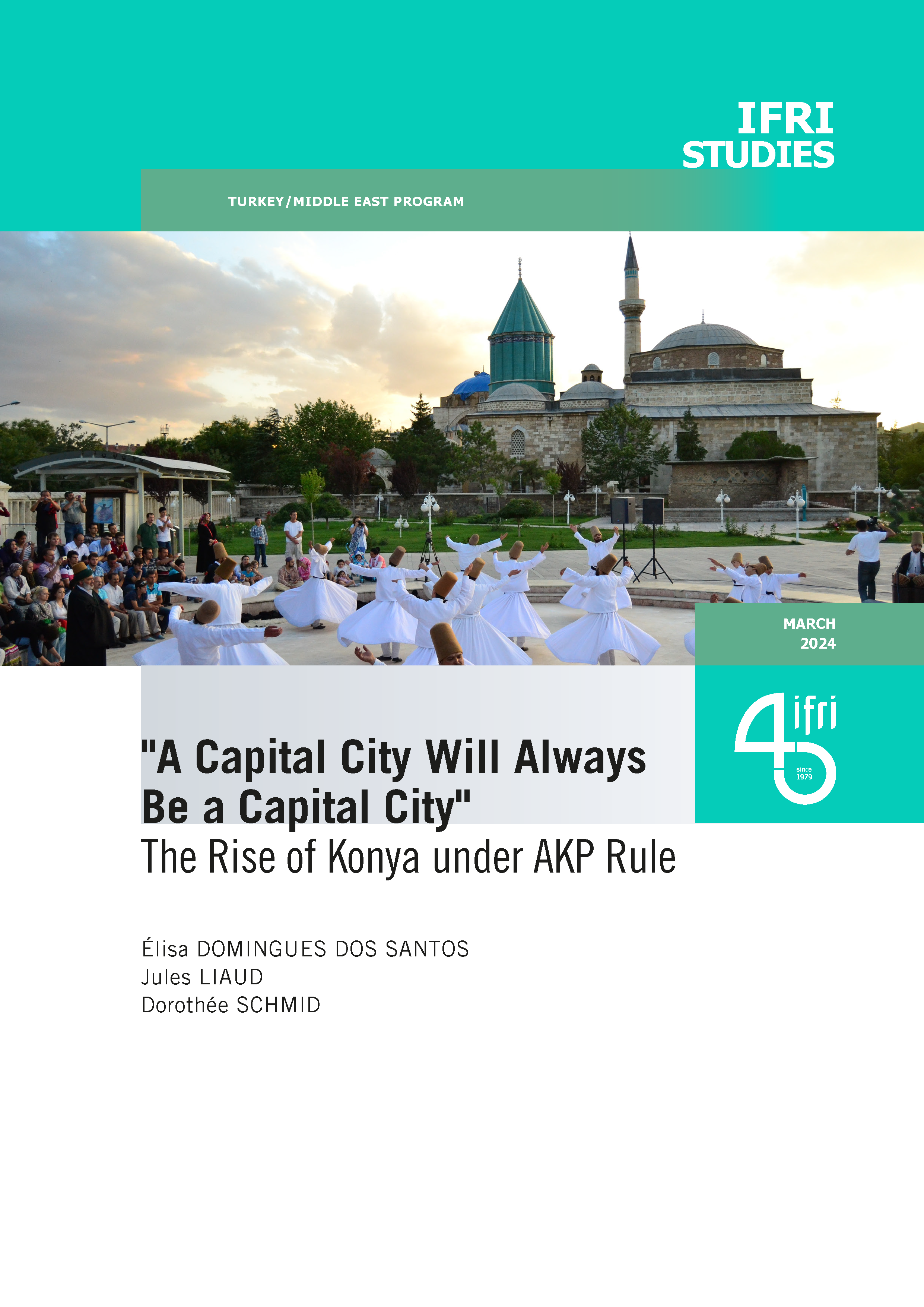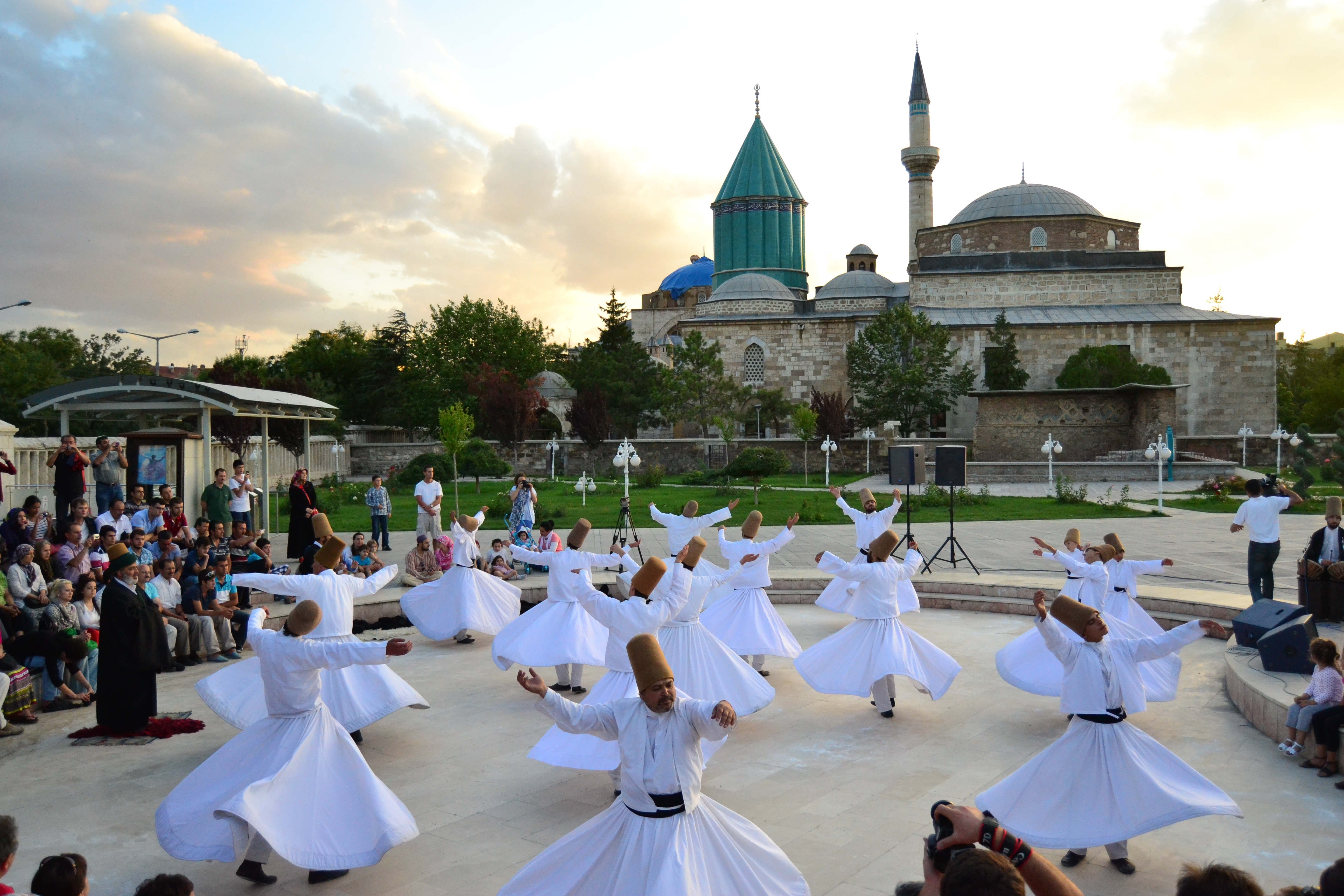"A Capital City Will Always Be a Capital City”: Konya’s Rise Under the AKP’s Rule

While the May 2023 parliamentary and presidential elections looked as a difficult test for the flagging Islamo-conservative Justice and Development Party (AKP), they eventually held on to power, demonstrating their remarkable foothold in the Turkish context. The party notably recorded one of its highest scores in Konya, confirming the massive and uninterrupted support of this two-million inhabitants central Anatolian city for Turkish political Islam.

The phenomenon can be explained by the benefits that Konya has derived from its relationship with the Islamic movement for several decades. Long marginalized in a provincial space, little connected to Western Turkey’s centers of power, Konya, renowned for its history and religious heritage, became an “Anatolian tiger” under the AKP rule. The province’s economic development started from an agricultural base (Turkey’s cereal granary) enabling the emergence of a local agro-industry. It was driven by dynamic small and medium-sized enterprises, combining conservative values with entrepreneurial efficiency. Forging close ties with the AKP, Konya has benefited from territorial development policies that facilitated its rapid opening to the world. Thanks to its Anatolian identity, central geography, diversity of human flows and capacity to project its economic dynamism into increasingly distant markets (like Africa), Konya has become a showcase for the paradoxical modernity of the new Turkey.
This publication is available in French : "Une capitale restera toujours une capitale" : l'essor de Konya sous l'AKP
Download the full analysis
This page contains only a summary of our work. If you would like to have access to all the information from our research on the subject, you can download the full version in PDF format.
"A Capital City Will Always Be a Capital City”: Konya’s Rise Under the AKP’s Rule
Related centers and programs
Discover our other research centers and programsFind out more
Discover all our analyses
RAMSES 2025. Between Powers and Powerlessness
Never before have there been so many powers able to upset the international balance of power, and never before have the dominant powers seemed so powerless to counter the fragmentation of the world.
Out of Thin Air but More than a Mirage: The Politics of Saudi Arabia's Nascent Music Industry
This study critically examines Saudi Arabia’s nascent music industry, which is promoted as a key element of Vision 2030, Crown Prince Mohammed bin Salman’s strategic framework to diversify the kingdom’s economy. It explores how state-led investments in music and entertainment intersect with authoritarian governance. The author neither dismisses these investments as conspicuous spending nor reproduces an alarmist narrative of impending cultural imperialism. The article takes a political sociology approach to understand how Saudi entertainment plans consolidate domestic power and reshape regional cultural landscapes.
Hostage diplomacy of the Islamic Republic of Iran. The case of Europeans detained in Iran
The so-called hostage diplomacy of the Islamic Republic of Iran refers to a political and diplomatic strategy in which Tehran uses the detention of Western nationals, dual citizens, or Iranian citizens residing in Europe, Australia, or the United States as leverage in diplomatic negotiations. This practice aims to exert pressure to secure political, economic, or diplomatic concessions as part of Tehran’s asymmetric response strategy. Hostage diplomacy remains a controversial yet effective tool from the perspective of the Islamic Republic of Iran, given its context of economic sanctions and diplomatic isolation.
Is the Republican People’s Party (CHP) Rising from the Ashes?
The victory of the CHP [Cumhuriyet Halk Partisi, Republican People’s Party] in the Turkish municipal elections of March 2024 firmly established it as the leading party of opposition to the Islamic-conservative AKP [Adalet ve Kalkınma Partisi, Justice and Development Party], which has been in power since 2002.













